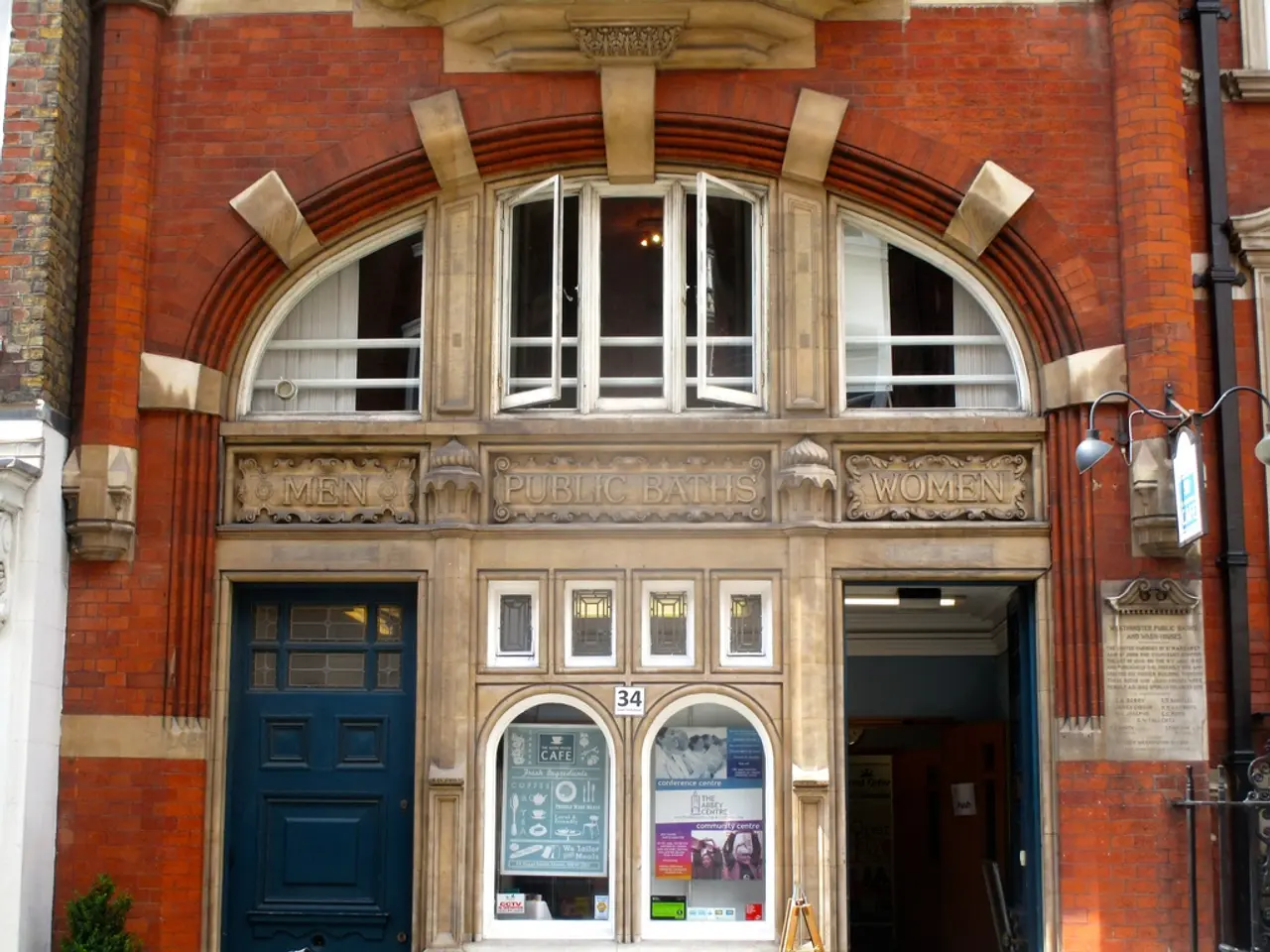Israeli settlement plans, according to a minister, are seen as the "last nail in the coffin" for the establishment of a Palestinian state.
The latest expansion of the Ma'ale Adumim settlement, a significant Israeli settlement in the West Bank, is causing international concern. The expansion, which includes over 3,000 new homes, is set to take place between Jerusalem and the West Bank, particularly in the E1 area[1][2].
This development is seen as a substantial obstacle to Palestinian statehood, as it threatens to physically divide the West Bank, effectively splitting it into two separate parts and cutting off East Jerusalem from the remainder of the territory Palestinians seek for their state[1][2].
The Palestinian foreign affairs ministry has linked the new tenders to "the notion of 'Greater Israel'" and part of a wider plan to "undermine the opportunity to establish the Palestinian state." The construction of new homes near Ma'ale Adumim, according to Peace Now, is a clear attempt to prevent the possibility of a Palestinian state[1].
The plan has the full support of Israeli prime minister Binyamin Netanyahu. Israel has unfrozen E1 construction plans, which had been on hold since 2012 due to objections from various world powers[1]. Ma'ale Adumim mayor Guy Yifrach strongly supports the plans, citing the need to absorb the natural growth of the community[1].
The move has been condemned by international actors including the British Bishops and the German Federal Foreign Office, both urging Israel to halt further settlement activity and adhere to internationally agreed parameters from before 1967[1][2].
The expansion is seen as a violation of international law and relevant UN Security Council resolutions. It makes a negotiated two-state solution far more difficult to realize, as it imposes facts on the ground that prejudice final borders[2].
The Palestinians wanted East Jerusalem, Bethlehem, and Ramallah to serve as the foundation of a future independent state, but the construction divides the West Bank and blocks this possibility[1]. The construction would also limit Palestinian movement and access within the West Bank, exacerbating daily hardships and undermining Palestinian self-determination[1][2].
The plan includes building more than 3,000 new homes near Ma'ale Adumim, reviving the E1 project. Once completed, the E1 project will essentially divide the West Bank in two, blocking territorial contiguity for Palestinians[1].
The move has led to widespread condemnation from the Arab world, with Jordan and Egypt being among the strongest critics[1]. Palestinian Authority spokesman Nabil Abu Rudeineh has stated that the move will lead to escalation, tension, and instability[1].
Anti-settlement watchdog Peace Now has criticized the move, stating that it deepens annexation of the West Bank and prevents a two-state solution[1]. The ministry has called for international intervention and sanctions to thwart the move, as it is seen as a substantial obstacle to peace and Palestinian self-determination[1]. The expansion, according to Israeli minister Bezalel Smotrich, marks the "final nail in the coffin of a Palestinian state."[1]
The latest Israeli settlement expansion in the West Bank, concerning politics and general news, has fueled international concern due to its potential to physically divide the West Bank and prevent a two-state solution by limiting Palestinian movement and access. This expansion, which includes over 3,000 new homes near Ma'ale Adumim, is seen as a violation of international law and has led to condemnation from multiple international actors, including the Arab world, who view it as a substantial obstacle to peace and Palestinian self-determination.
The construction of new homes near Ma'ale Adumim, part of the broader argument of 'Greater Israel', is linked by the Palestinian foreign affairs ministry to a wider plan to undermine the opportunity to establish the Palestinian state, thus contributing to the ongoing war-and-conflicts in the region.





